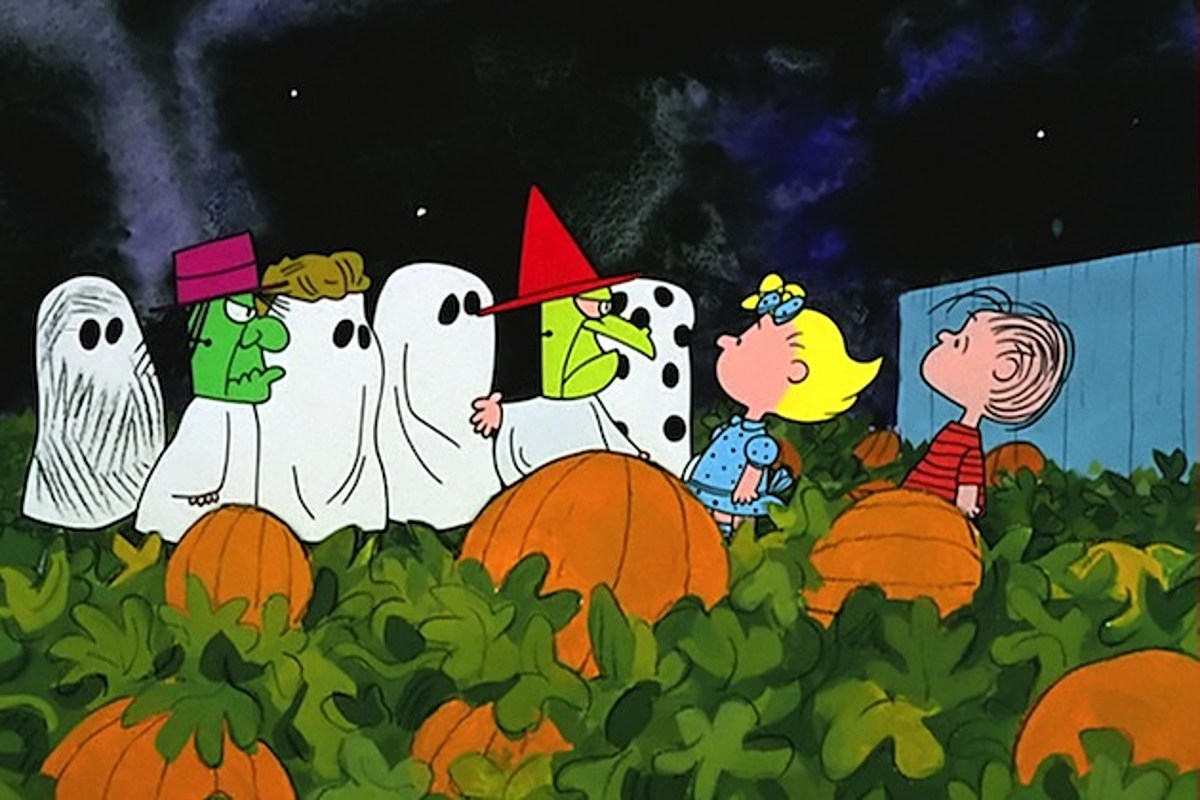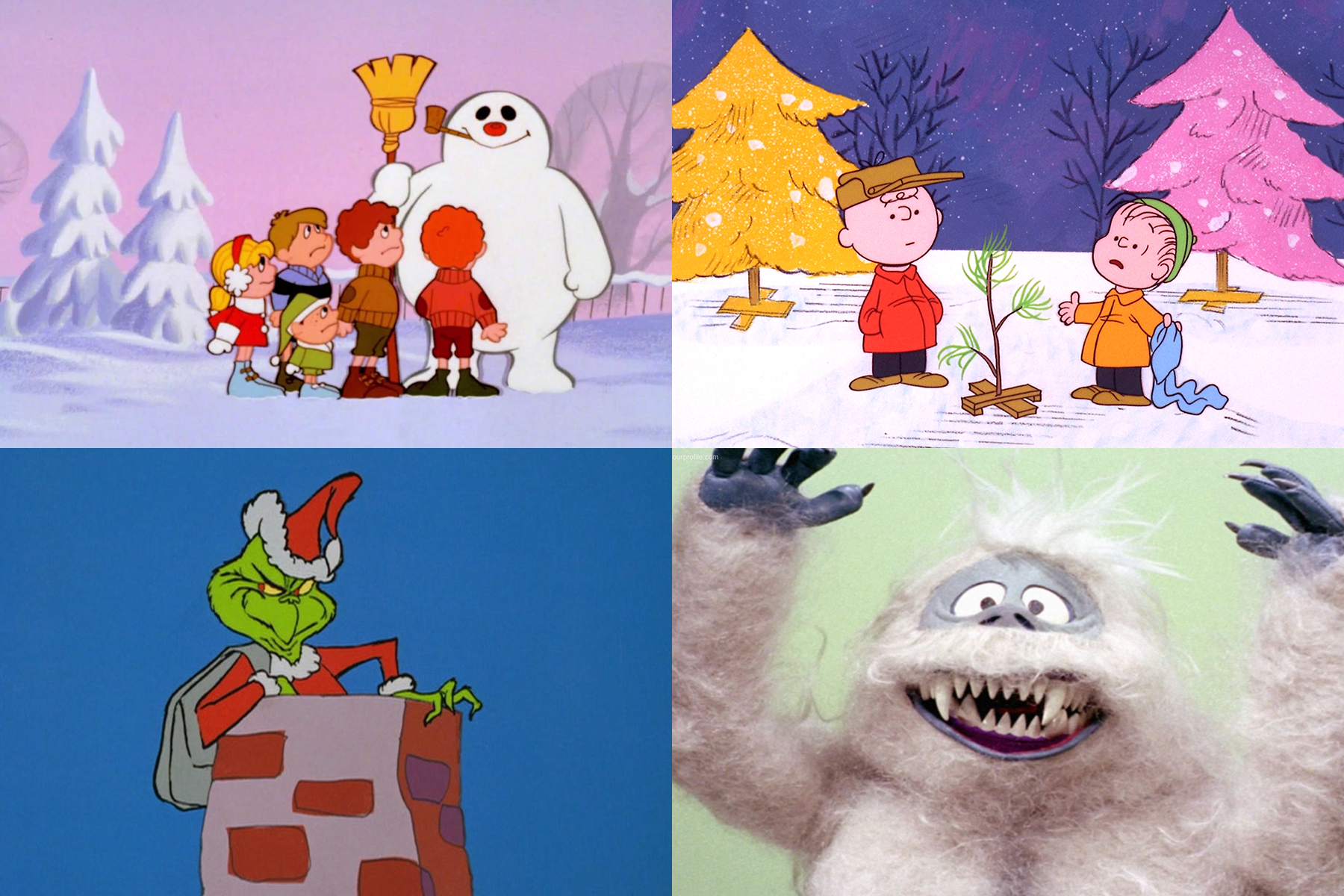There’s a moment early in It’s the Great Pumpkin, Charlie Brown when Linus pens a letter to the titular imaginary magical gourd expressing his sympathy over the way he’s been overshadowed: “You must get discouraged because more people believe in Santa Claus than in you,” he writes. “Well, let’s face it. Santa Claus has had more publicity. But being number two, perhaps you try harder.”
In some ways, it feels like he’s talking about the 1966 Peanuts special itself. It’s considered a classic nowadays — so much so that its recent move from broadcast TV to Apple TV+ sparked a minor outrage among those who enjoyed the yearly tradition of watching it on ABC. But we all know that Christmas is king when it comes to Charles Schulz’s beloved cartoon. A Charlie Brown Christmas came first, and in the decades since, everything about it has become an iconic holiday tradition, from Charlie Brown’s pathetic tree to Linus’s monologue about the true meaning of the holiday and the Vince Guaraldi Trio’s quadruple-platinum soundtrack album.
So, It‘s the Great Pumpkin, Charlie Brown may be the number two Peanuts holiday special, but it does try harder, thanks largely to Guaraldi and his soundtrack (which inexplicably didn’t get a formal release until 2018). The jazz pianist’s relationship with Charlie Brown and company can actually be traced back to his 1962 track “Cast Your Fate to the Wind” — a Grammy-winning composition in which you can hear the groundwork for “Linus and Lucy” — which caught the attention of producer Lee Mendelson. Mendelson asked Guaraldi to do the music for a Peanuts documentary that never got off the ground, but the partnership was solidified. A Charlie Brown Christmas came first and, of course, gave us classics like “Linus and Lucy” and “Christmastime is Here,” and it was followed a second special called Charlie Brown’s All-Stars! But it wasn’t until Great Pumpkin that Guaraldi solidified what would come to be known as the Peanuts sound.
“Linus and Lucy” is absent from Charlie Brown’s All-Stars!, but as legend has it, Guaraldi suggested to Mendelson that it become the unofficial Peanuts theme song ahead of It’s the Great Pumpkin, Charlie Brown. Mendelson was receptive, and Guaraldi recorded a new, fleshed-out version of the track with his sextet — which included Emmanuel Klein on trumpet, John Gray on guitar, Ronald Lang on flute, Monty Budwig on bass and Colin Bailey on drums — that’s widely regarded as the best arrangement of it. The sextet version of “Linus and Lucy,” highlighted by Lang’s flute counterpoint, is peppered throughout Great Pumpkin, and it’s given room to breathe during the special’s dialogue-free cold open featuring the two siblings it takes its name from searching for a suitable pumpkin to carve.
In fact, all of Guaraldi’s music is front-and-center in Great Pumpkin, whether it’s the serene “Great Pumpkin Waltz,” the spookier “Graveyard Theme” or his arrangements of World War I-era standards for Snoopy’s flying ace character. The plot is sparse, catered to a child’s attention span, and there are many moments where it feels like the scenes have been written around the music instead of vice versa.
It’s the Great Pumpkin, Charlie Brown is, in many ways, much darker than A Charlie Brown Christmas. There’s no warm-and-fuzzy resolution about the true meaning of the holiday, no feel-good moments where the gang all wave their tiny hands around a dopey-looking tree to magically adorn it with beauty. It’s a mediation on faith, but no matter how long he waits or how deeply he believes, Linus’s unwavering devotion goes unrewarded; the Great Pumpkin never shows up. Charlie Brown gets that football yanked out from under him from Lucy for the umpteenth time, and when he goes trick-or-treating, all he gets is a bunch of rocks. The World War I Flying Ace starts weeping when Schroeder plays “There’s A Long, Long Trail A-Winding” at the Halloween party and leaves in embarrassment. (We get it, Snoopy. War is hell.)
All things considered, it’s a pretty rough Halloween for everyone, and the special wraps up with a post-mortem by Linus and Charlie Brown recapping what a bummer it was. Charlie Brown’s still dwelling on his bag full of rocks (to be honest, I am too: all the adults in the neighborhood got together and conspired to specifically target one kid with rocks instead of candy?!), and when Linus reveals he spent all night in the pumpkin patch waiting for the Great Pumpkin, he tries to console him, saying, “Don’t take it too hard, Linus. I did a lot of stupid things in my life, too.” Linus gets angry and launches into a “wait ’til next year” speech that hints at the same Sisyphean tragedy behind Charlie Brown’s endless quest to kick that football. And yet, behind all this is a bright reprisal of Guaraldi’s “Charlie Brown Theme.”
It’s upbeat and innocent-sounding, relaxing and familiar. It lets us know that all is not lost, that no matter how terrible things get, the world keeps turning, and kids will keep being kids — whether they’re clinging to something they know deep down isn’t real or hoping futilely that this time the football won’t get snatched away. That’s comforting in a weird way, especially in a year like this one where a pandemic has handed us all our own metaphorical bag of rocks. The Great Pumpkin soundtrack reminds us that all we can do is press on and hope for the best. And hey, if it turns out awful, we can always shift our attention back to our number one in a couple months for Christmas.
This article was featured in the InsideHook newsletter. Sign up now.





















